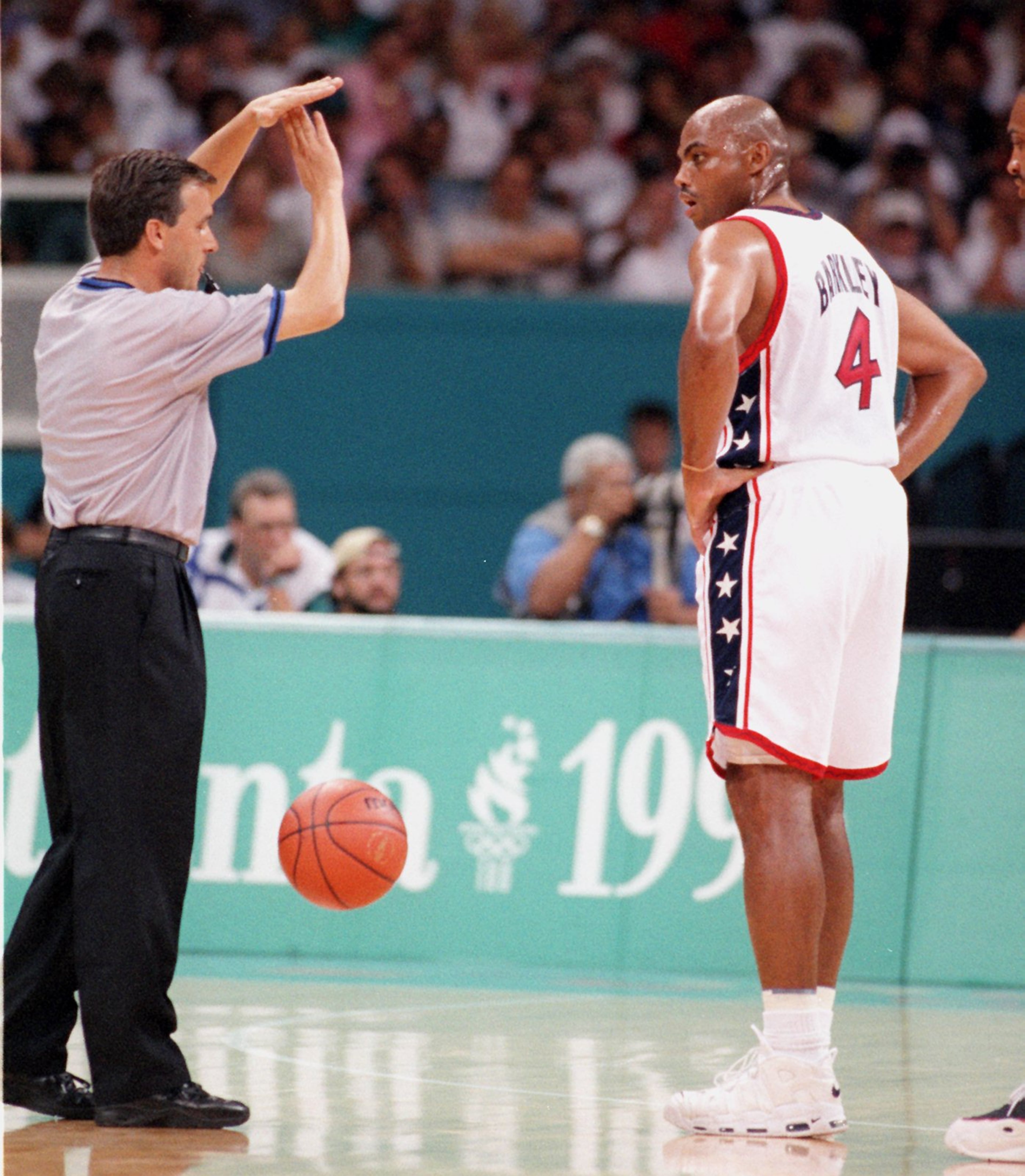U.S. men continued Dream Team at Atlanta Games














In July and August 1996, the world sent its finest athletes to Atlanta. Some athletes came as familiar names from familiar nations. Others had toiled in obscurity. Each came proudly to Atlanta, and Atlanta received them in the same manner. To commemorate the 20th anniversary of those Summer Games, the AJC offers 20 memorable athletes and performances.
The 11th in the series: The U.S. men’s basketball team, dubbed Dream Team III, won the gold medal.
Bobby Cremins acknowledges making a huge mistake when he was the assistant coach for the U.S. men’s basketball team that steamrolled everyone its path in winning the gold medal during the 1996 Summer Olympics in Atlanta.
His mistake was offering to referee the team’s practices, which were in truth the only time the collection of NBA superstars dubbed Dream Team III were challenged that summer.
“I had no idea they would take it so seriously,” Cremins said.
After three days, Cremins said he went to coach Lenny Wilkens, who was head coach of the Hawks from 1993-2000, and begged him to bring in NBA officials.
“I thought the players were going to kill me,” Cremins said.
Grant Hill, who had just finished his second seasons with the Pistons, said basketball founder James Naismith could have been refereeing the scrimmages, and it wouldn’t have mattered.
“Guys would bark about calls,” said Hill, now the Hawks’ vice chairman of the board and a part-owner of the team.
The practices worked, not that the team needed them for the Summer Games.
Dream Team III won every game in the Olympics by at least 22 points, punctuated by a 95-69 victory over Yugoslavia for the gold medal.
“It’s always good to win by 30-plus points, no matter the competition,” Reggie Miller said. “Personally, for me, the practices were the best. You are going the best players at your position.”
Miller said the scrimmages were played to seven by ones.
The teams, no matter who was on them, were always even. The pool of players featured some of the legends of the game: Charles Barkley, Karl Malone, Hakeem Olajuwon, Shaquille O’Neal, David Robinson, John Stockton, Penny Hardaway, Scottie Pippen, Mitch Richmond and Gary Payton.
“Came down to the little things to win,” Miller said.
Those little things were lessons that Miller and Hill said they carried into their careers. Hill often was matched in those practices against Scottie Pippen, seen as the gold standard at small forward.
Hill said it’s no coincidence that he became a much better player in his third season in the NBA. His averages increased in scoring (20.2 points per game to 21.4), shooting percentage (46.8 to 50.2), 3-point shooting percentage (19.2 to 30.3), assists (6.9 to 7.3) and steals (1.3 to 1.8).
“You want to push yourself and take yourself out of your comfort zone,” he said. “Every day I was challenged.”
Miller said he wanted to learn the nuances of the pick-and-roll that Malone and Stockton perfected with the Utah Jazz. He would also talk to Stockton about shooting free throws. Miller learned it wasn’t just techniques, it was chemistry. He wanted that with his Pacers teammates Rik Smits, Antonio Davis and Dale Davis.
“I just tried to emulate the chemistry they had,” Miller said.
Miller said he also enjoyed finally getting to know his teammates. He said players spend most of the season “trying to kick them, hold them, kick the crap out of them.
“Getting to know these guys on plane rides and bus rides, hearing and sharing the same stories, that was my takeaway.”



